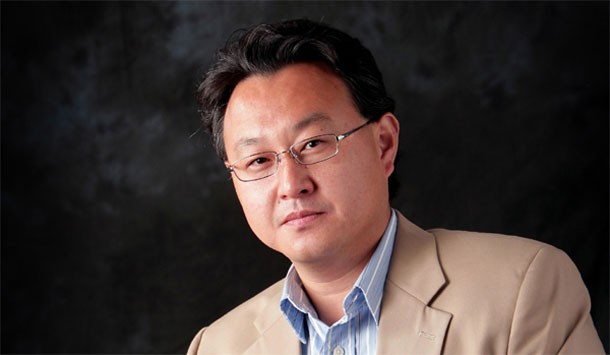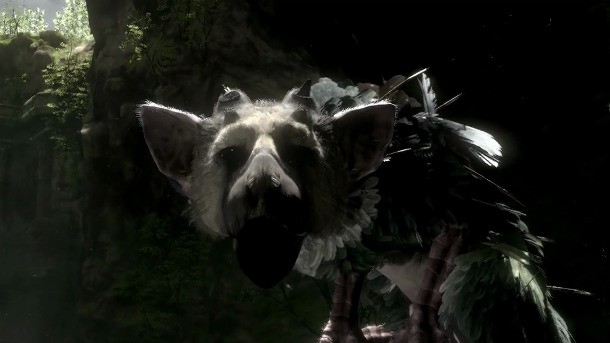Please support Game Informer. Print magazine subscriptions are less than $2 per issue
Sony Talks The Last Guardian, Demon's Souls, And The Vita Launch

2011 was one of Sony's best years in terms of first-party software releases. The company released many titles, such as LittleBigPlanet 2, Killzone 3, Uncharted 3, and Infamous 2. Sony also released its newest handheld, the PlayStation Vita, in late December in Japan. The Vita launches in North America and Europe later this month. We talked to the president of Sony's Worldwide studios Shuhei Yoshida about what the company learned from the Vita's Japanese launch and the mistakes they hope to correct this year.
Game Informer: I first wanted to get your thoughts on the PlayStation Vita launch in Japan. It started out pretty well, but every week it seemed sales dipped and dipped.
Shuhei Yoshida: In terms of sales, yes. But it’s within our expectation. It didn’t hit our highest expectations, however. From that standpoint it’s disappointing. But when you look at the market in Japan today, it’s a very strong portable market as you know, and the PSP is still very strong and lots of new games come out for it. So PSP is still very relevant. And of course 3DS had the perfect storm of top quality games for Christmas with the reduced price.
Considering all of that, with the numbers we have seen in terms of sell–through, I am very happy.
What have you learned from the Japan launch of the Vita that you might look to remedy for North America and Europe later this month?
There are two major differences. One is the type of lineup that we had for the launch. Games like Uncharted are not a big name in Japan. Hopefully it’s growing in awareness like Call of Duty or Grand Theft Auto. It’s not like this game will sell a million units. Gamers in Japan want games catered to their tastes. From that standpoint we didn’t have a strong lineup for the Japanese market.
The second is the PSP. We’re advertising PSP on TV while advertising Vita. So it’s three portables in Japan.
I’m cautiously optimistic. We’ll have to see how the launch goes. In terms of what we have as a foundation as a platform, we’re envisioning this as a seven or eight year platform and are very happy with what we have today and can improve upon it.
Can you give any perspective on how the digital sales of Vita games are doing?
It’s a growing number. We are not specifying numbers, but it’s certainly higher than what we have on other platforms. Digital PSP games jumped. As more people find out how convenient digital games are on the system, my prediction is the ratio goes higher.
Do you think digital Vita sales will outperform retail sales in the Vita’s life?
If our digital platform becomes as strong as we are hoping to be, meaning lots of smaller games get created for the Vita market, I could see that happening within the life cycle of the Vita. If the majority of games coming to Vita are still console-sized games, the majority of sales will stay at the retail level.
There’s a lot of talk about Fumito Ueda leaving Team Ico and the state of Sony’s Japan studios...
Ueda-san has never left the team. It’s a change of his work status from being an employee to working as a contract. We discussed and made it more clear about his role and his creative input and how he works, but he hasn’t changed his presence; he comes to the office. It’s being talked about as if he left the game, but that never happened.
But in terms of the state of the studio in Japan, we have a new head of studio, Allan Becker. He’s been with PlayStation from the beginning. He founded Sony Santa Monica studio. I asked him to move to Japan to instill his philosophy of making games. He's also bringing these two different cultures together. He started in April last year as the head of the Japan studio and has already made a big impact.

What’s the latest on The Last Guardian?
It’s making progress. There have been technical issues and the engineering team is reworking it. It’s playable, but not to the level of when we can say it’s coming.
I feel one of Sony’s biggest software mistakes this generation was passing on publishing Demon’s Souls in North America and Europe.
Absolutely! Tell me about it! 100 percent agree!
How did it happen? Was it as simple as this game wasn’t going to sell? How involved were you?
In short, that’s what happens to any game. Especially games made in Japan since the majority of them aren’t relevant to markets outside of Japan. There are always processes between product development and marketing in U.S. and Europe. All things considered, it’s part of the issue of making games in Japan. The game development in Japan typically is made horizontally where all assets are made in parallel, so it’s difficult to figure out what the final state of the game is going to be.
The western style game development is typically a vertical slice. So in the very early process, the team tried to create a small piece of the experience that resembles the final product. What happened with Demon’s Souls was until very late in the game’s development, we were not able to play the game through. There were framerate issues and the network was not up and running. We underestimated the quality of the game and to be honest, the media in Japan did the same.
For my personal experience with Demon’s Souls, when it was close to final I spent close to two hours playing it and after two hours I was still standing at the beginning at the game. I said, “This is crap. This is an unbelievably bad game.” So I put it aside.
Luckily, third party publishers, Atlus in North America and Namco in Europe [stepped in], and it really became a great hit outside of Japan.
We definitely dropped the ball from a publishing standpoint, including studio management side. We were not able to see the value of the product we were making.
Did you learn from that experience?
Game development is a tough process. We start and stop many games. Some get made to the finish, but we have to make decisions. I hope we won’t make the same mistake again. I should have been more stubborn talking to marketing people here in North America and Europe.
Sony owns the Demon’s Souls IP. What are you going to do with it?
We never sell our IPs. Well, I should never say never, but it’s not our business. Our business is to grow our IP and we love Demon’s Souls. From Software is a very important business partner, so we’ll see.
I wanted to get your perspective on the sales of Sony first-party titles compared to say, Microsoft. Sony published many titles in 2011, but most didn’t sell as well as you probably expected. Microsoft, released one game, Gears of War 3, which outsold many of Sony’s games combined. How do you evaluate that? Is this just a marketing issue?
It’s a combination of many things. First, we have to be very honest about our games’ quality as well. We love our games, but we can point out many issues when you look at the titles individually.
Another thing is focus. When you have ten games coming out in a year compared to two or three, how much focus you get from our business and marketing side is very hard. From a portfolio side, we were very excited about the games we had last year, but we probably diluted support for each title.
Could you see Sony putting out fewer games?
It’s easy to say, “Yeah, let’s make three games a year.” But game development is dynamic. You cannot plan to do that. You already have to have a certain number of games in the pipeline hoping they hit in a certain year. We love working on new IPs. It’s really hard to predict when these games get finished.
It’s a challenge, but I think we could and probably should be focused on a smaller number of titles so each one gets the best support.










